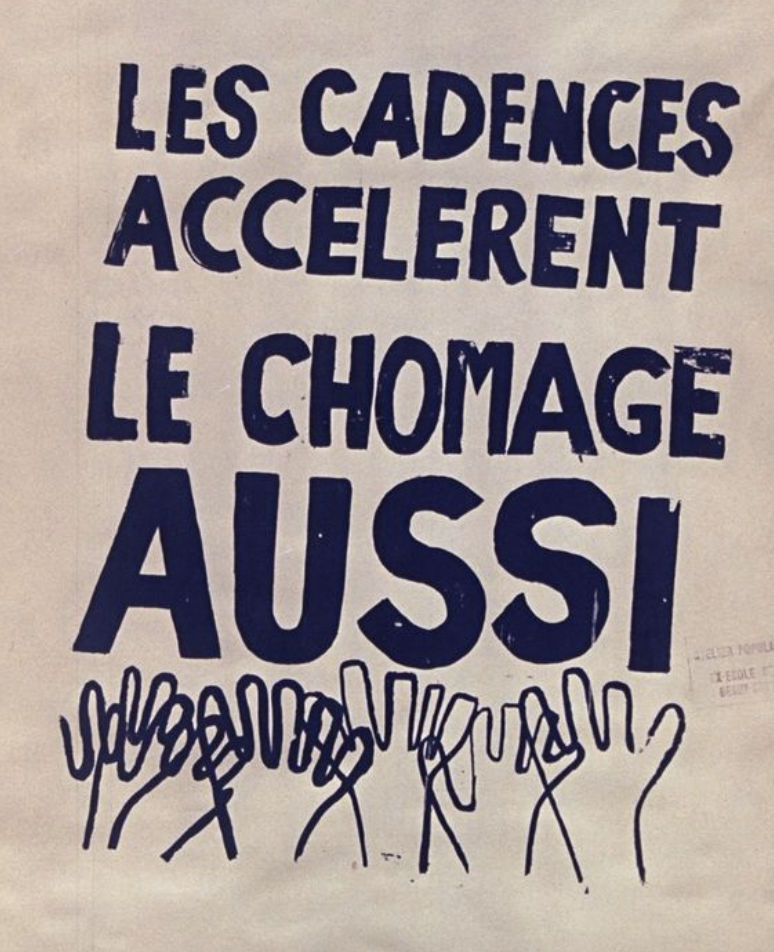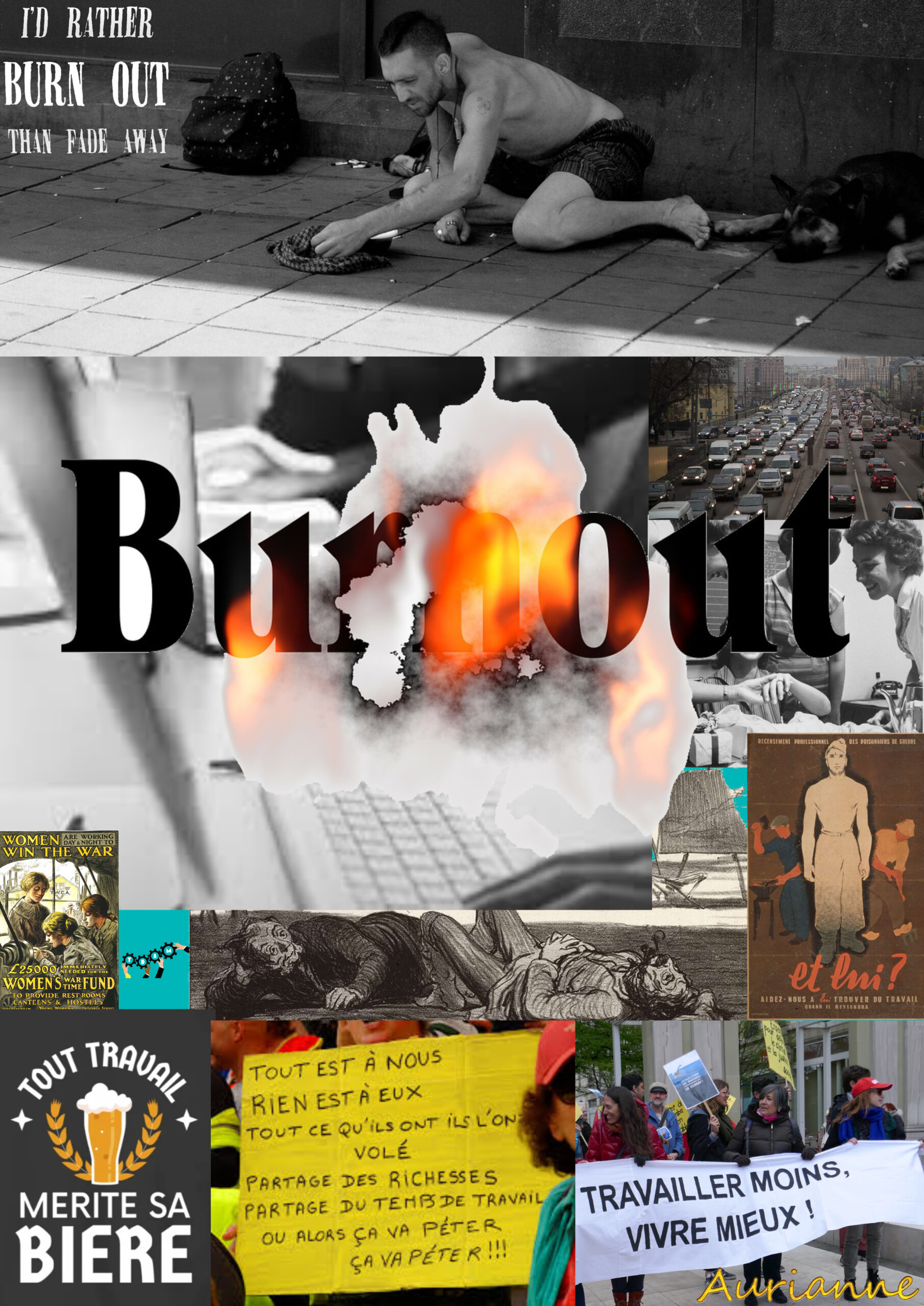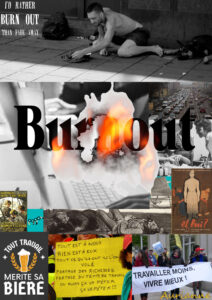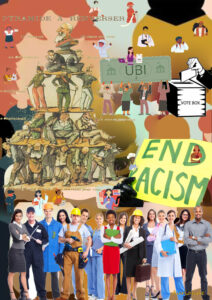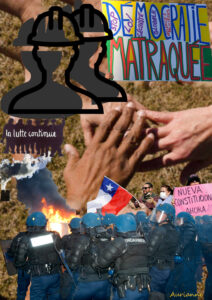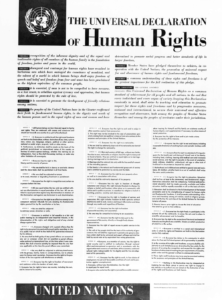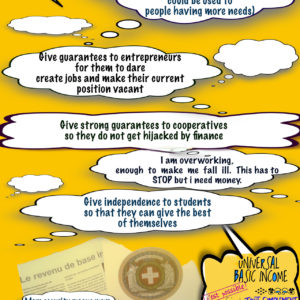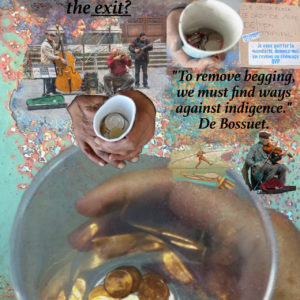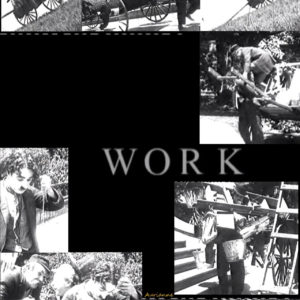In Greek, Roman and Eastern antiquity, work was seen as a necessary evil. If possible, others were made to do it for you. The earliest references to work in Mesopotamia depicted gods imposing their tasks on men, because gods were stronger. Value in antiquity was not work, but knowledge, information and the arts.
In medieval society, the privilege of the nobility was not to work, and they had to avoid showing the marks of their labor: calloused hands, tanning, etc. We start talking about work when the noble forces the weak to do a chore. There was no talk of work for the craftsman, the one who made things. Until the Industrial Revolution, the craftsman and his network made the entire product, and was paid for the finished product. For example, a bed was purchased. The price depended on quality, and there was no notion of working time.
With the industrial revolution, quality became less important. We considered price. Everything was produced in the division of labor, and the worker was paid for his time. In the 19th century, the value of work was born. The employer asked the worker to work as much as possible in the time he was paid. The Church modified its doctrine to say that man could draw closer to God through work.
At the beginning of the 20th century, the boss bought hours and the worker had to give his all. With the First World War, many of the men went to the front. Women produced armaments. And yet, for the majority of the population in Europe, with the exception of Russia, which was not industrialized, everything functioned normally: stores, public services and so on. When soldiers returned from the front, full-time salaries were needed to employ them. In 1920, Bertrand Russel wondered why. Why ask men and women to work from morning to night when, according to his calculations at the time, society would function normally, thanks to technical progress, if people worked 4 hours a day, 4 days a week? Why does the citizen have to choose between working with all his strength and health to the point of exhaustion, or being deposed, losing everything? If work leads to holiness, why don’t the nobles work? Don’t they also aspire to holiness? What to do with those who have no work? In the 1920s, the homeless were multiplying on the streets of European cities.
Why not share the workload?
The absurdity doesn’t stop there. In the post-war years, economics tried to become a science. Economists demonstrated that changes in productivity are essentially due to changes in working methods, not working hours. Producing more cars in the same factory does not depend on workers’ workload, but on work methods.
Since the 50s, economists have shown that increasing the effort required of workers reduces productivity, due to a lack of concentration and accidents in the workplace. This costs society and pollutes it: burn-outs, anti-depressants, illnesses linked to sedentary lifestyles, stress and junk food, childcare (some of whom become delinquents), the trains and freeways needed to get everyone to work in the morning and back home together in the evening, and so on. The need to work is also paid for in human terms: harassment, suicides, abuse, acceptance of dangerous working conditions, isolation, etc. Some take drugs to keep up.
Why are the jobs that provide the greatest services the ones that have the most work and are the least paid: nursery workers, nurses, police officers, policemen, laborers, farmers, teachers, etc.? Corruption and short-term political interests have created many Bullshit Jobs, as David Graeber puts it. Why not make use of this labor force and assign it to places where there is a shortage of personnel: day-care centers, hospitals, the police, teachers, etc.?
The problem is not economic. To earn more, people have to work less.
In society in general, it’s commonly accepted that you have to work yourself to exhaustion: look at nurses, cooks, etc. 75% of our representatives are property owners or stock market shareholders, who live without working, who are the richest people.
The value of work is a toxic notion. The one who works is the servant and the one who doesn’t work is the master. Nothing has changed. Forcing people to work in order to survive, through wages, means using work to achieve what the French Revolution destroyed by abolishing privileges.
Workers are forced to work, otherwise they have no right to anything. The examples of dismissed people are used as scarecrows to control others. Many feel obliged to accept bad or even dangerous relationships with employers, spouses or parents, because otherwise they would lose their livelihoods. Gaps in resumes are often regarded with disfavor, forcing employees to stay on in poor conditions. It would be better to recruit with skills tests rather than a resume.
Housewives and househusbands need to be revalued. Today, they are taking great risks. If their spouse loses his or her job, falls ill or dies, or if there is a divorce, these homemakers can sink into poverty. In fact, single-parent families suffer more from poverty than other families. As they have no guarantees, both members of the couple have to work a lot (as contracts on the job market are mostly full-time) and entrust the children’s upbringing to after-school care, a nanny or grandparents. They have the choice between overworking and seeing little of their children, or taking care of the house and children, risking plunging the family into poverty.
Working hard is not a quality, it is not a goal and it is not economically viable. Getting up early and working late achieve nothing. The neoliberal ideology that promotes this is misleading. It is not the individual who is responsible for failures; taking drugs to perform better leads nowhere. It is society that must better distribute useful work and redistribute wealth.
Les vrais perdants – ONF: https://youtu.be/xIqIYBUK6Fk?si=xClfjHz8VouJ2kzU
What’s more, those who destroy jobs by relocating or using unfair competition (products produced abroad under poor social and environmental conditions) are the first to call lazy those who have lost their sources of income and can’t find a job.
The aim should be to contribute something to society, to be of service, to create useful things, to pay attention to the quality of one’s work.
The sharing of work and wealth is necessary to eliminate the society of privilege and class. It’s economically viable.
Putting people to work to control the population is anti-democratic. After all, how can you take care of politics, your diet, elders or the education of your children if you’re exhausted from work? To deprive citizens of idleness is to control them.
Translated with Deepl
Toujours plus ! L’économie des excès – Épisode 1/3 : Surtravail : quand on aime, on ne compte pas – Franceculture: https://www.radiofrance.fr/franceculture/podcasts/entendez-vous-l-eco/surtravail-quand-on-aime-on-ne-compte-pas-3703048
Le travail c’est la sainteté – Cathédrale de Perpignan: https://cathedraleperpignan.fr/le-travail-cest-la-saintete/
Le Temps des ouvriers – 4 épisodes – arte campus: https://campus.arte.tv/serie/le-temps-des-ouvriers-tous-les-episodes
Work ethic – Wikipedia: https://en.wikipedia.org/wiki/Work_ethic
Roger & Me – Michael Moore – 1985: https://en.wikipedia.org/wiki/Roger_%26_Me
In Praise of Idleness – Bertrand Russell – Wikipedia: https://en.wikipedia.org/wiki/In_Praise_of_Idleness_and_Other_Essays
Pourquoi les personnes occupant un emploi “essentiel” sont-elles si mal payées ? – Bruno Palier- Sciences Po – Hal Open Science: https://sciencespo.hal.science/hal-03102794v1/document
Épisode 2/44 : Fonctionnaires : privilégiés ou déclassés ? – France culture: https://www.radiofrance.fr/franceculture/podcasts/entendez-vous-l-eco/fonctionnaires-privilegies-ou-declasses-7623793
Rythmes de travail… et cadences infernales – Work pace setting and control
Pierrette Sartin – Erudit: https://www.erudit.org/fr/revues/ri/1970-v25-n2-ri2811/028126ar.pdf
Bullshit jobs – David Graeber – Wikipedia: https://en.wikipedia.org/wiki/Bullshit_Jobs
Moi, Christiane F., 13 ans, droguée, prostituée…– Christiane V. Felscherinow: https://www.babelio.com/livres/Felscherinow-Moi-Christiane-F-13-ans-droguee-prostituee/9577
Épisode 2/4 : Le travail, une valeur en question – France Culture: https://www.radiofrance.fr/franceculture/podcasts/lsd-la-serie-documentaire/le-travail-une-valeur-en-question-5782150
Plus rien – mickey3d: https://youtu.be/phy1WOyQUYI?si=tfM6pjhRZ3oStzRK
Épisode 2/4 : Le travail, une valeur en question – France Culture: https://www.radiofrance.fr/franceculture/podcasts/lsd-la-serie-documentaire/le-travail-une-valeur-en-question-5782150
La France qui ralentit – France Inter: https://www.radiofrance.fr/franceinter/podcasts/interception/interception-du-dimanche-06-octobre-2024-3459203
Comment reconquérir son temps libre ? – France Culture: https://www.radiofrance.fr/franceculture/podcasts/le-temps-du-debat-d-ete/comment-reconquerir-son-temps-libre-5978886
Didier Super – A Bas Les Gens Qui Bossent: https://youtu.be/QS70Tfe1P1k?si=QOnUamq044nJclB3
The Gods Must Be Crazy – Work: https://youtu.be/zS6G2x-OMUk
The Fixer – Black Books – Series 2 Episode 3: https://youtu.be/bcQb7zEzXv8?si=P3cqlqDu6l5qz7N4
Office Space (1999) – IMDB: https://www.imdb.com/title/tt0151804/

Alexandre le bienheureux (1968) – IMDB: https://www.imdb.com/fr/title/tt0061343/?ref_=tt_mv_close

